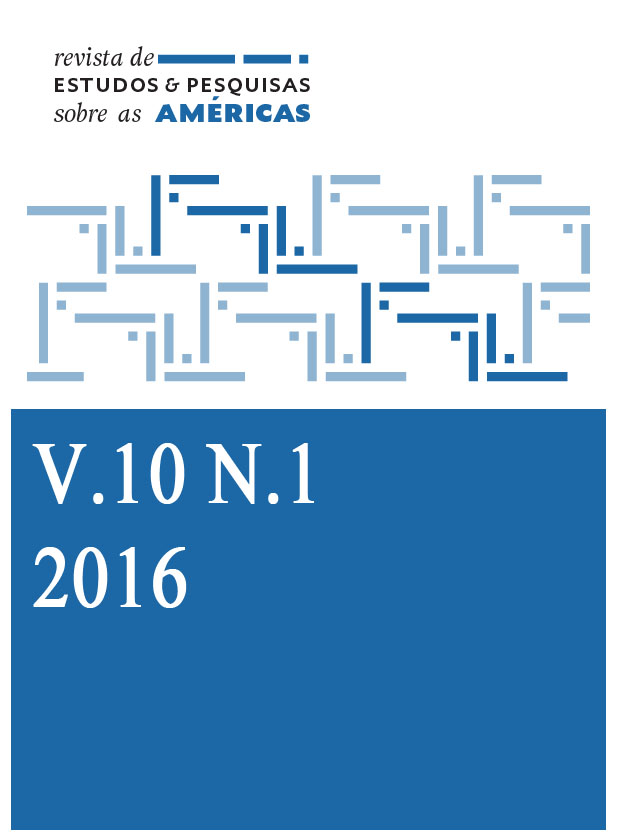Cuando lo Privado se Hace Público: el abogado del niño en la justicia de familia
Abstract
Resumo:
O objetivo deste trabalho é analisar as tensões, disputas e conflitos que surgiram no processo de implementação do advogado da criança na justiça de família Argentina, especificamente na Cidade Autônoma de Buenos Aires e na cidade de La Plata. Para tanto, analisamos casos paradigmáticos - reconstruídos desde o levantamento de registros do tribunal, palestras e entrevistas com vários intervenientes ao longo do nosso trabalho de campo; os vários usos e interpretações que dele emergem a entrada deste ator social na cena judicial. Não pretendemos fazer uma abordagem legalista dos diferentes debates produzidos a partir deste processo de identificação das crianças no campo judicial, que foram identificadas como sujeitos processuais com voz própria. Pretendemos abordar este novo ator social de uma perspectiva social-antropológica e examinar duas tensões recorrentes nas discussões relativas à garantia dos direitos de crianças e adolescentes: a tensão entre público e privado, e que se desdobra em termos de autonomia versus proteção.
Palavras-chave: Advogado; Antropologia Legal - pública e privada; Direitos das crianças; Justiça de Família
***Â
Resumen:
El objetivo de este artículo es analizar las tensiones, disputas y conflictos que emergieron en el proceso de implementación del abogado del niño en la justicia de familia de la Argentina, específicamente en la Ciudad Autónoma de Buenos Aires y en la ciudad de La Plata. Para ello, a través del análisis de casos paradigmáticos ”“reconstruidos a partir del relevamiento de expedientes judiciales y de las charlas y entrevistas mantenidas con distintos actores en el transcurso de nuestro trabajo de campo- se indagan los diversos usos e interpretaciones que emergen a partir de la entrada de esta figura en la escena judicial. Lejos de utilizar una lente jurídica para dar cuenta de los diferentes debates producidos a partir de este proceso de individualización de los niños en el ámbito judicial, en el cual han sido recortados como sujetos procesales con voz propia, abordamos esta novedosa figura desde una perspectiva socio-antropológica y examinamos dos tensiones recurrentes en los debates relativos a la garantía de los derechos de niños, niñas y adolescentes: la tensión entre lo público y lo privado, y la que se despliega en términos de autonomía versus protección.
Palabras Clave: Antropología Jurídica - Justicia de familia ”“ Derechos de los Niños ”“ Abogado ”“ Público y privado
***Â
Summary:
We analyze the tensions, disputes and conflicts that have appeared throughout the implementation of the Child’s Lawyer in Family Justice in Argentina and specifically in the cities of Buenos Aires and La Plata. This article looks into the different uses and interpretations that have emerged with the enforcement of this figure in the judicial scenario and for that purpose we analyze some paradigmatic cases reconstructed during our field work by means of judicial records and interviews and conversations with several actors. Far from resorting to a juridical lens to appreciate the debates around this process of the child individualization, singled out as procedural subject with its own voice in the judicial field, we address this novel figure by means of a socio-anthropological perspective, examining two recurring tensions in the debates around (he and she) children and adolescents rights: those concerning, on one side, public and private and, on the other, autonomy versus protection
Key words: Juridical Anthropology ”“ Family Justice ”“ Children’s rights ”“ Lawyer ”“ Public and private
Downloads
Published
Issue
Section
License
The published material is the property of the Journal, and may be reproduced in whole or in part with indication of the source.
Copyright: Authors will be responsible for obtaining the copyright of the material used. Authors who publish in this journal agree to the following terms:
a)Authors retain the copyright and grant the journal the right of first publication, with the work simultaneously licensed under
the Creative Commons Attribution License which allows the sharing of work with acknowledgment of authorship and initial publication in this journal.
b) Authors are authorized to take additional contracts separately, for non-exclusive distribution of the version of the work published in this journal (eg, publish in institutional repository or as a book chapter), with acknowledgment of authorship and initial publication in this journal.
c) Authors are allowed and encouraged to publish and distribute their work online (eg in institutional repositories or on their personal page) at any point before or during the editorial process, as this can generate productive changes as well as increase the impact and the citation of the published work (See The Effect of Free Access).
















